Scuba tank on my back, I rolled backwards off the Keppel Dive boat at Bald Rock reef yesterday into the ocean. I was hoping that as with previous claims of mass bleaching, this was exaggerated.
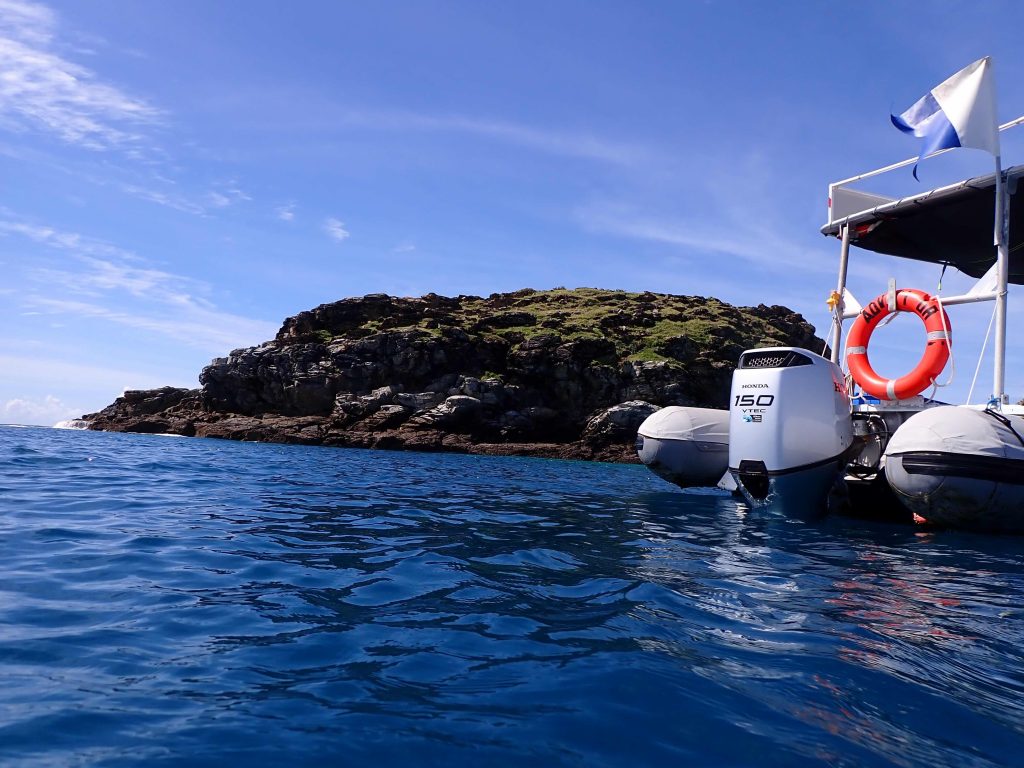
The New York Times had featured corals from Great Keppel Island in a single photograph as badly bleached. The image showed pale corals not white corals, and from one photograph it is difficult to know the extent.
Visibility was not great, but as I descended down into the blue, I could start to see white: by 8 metres I could see a large field of properly bleached Acropora, and that was all I could see, and the fishes. I could not see any healthy corals.
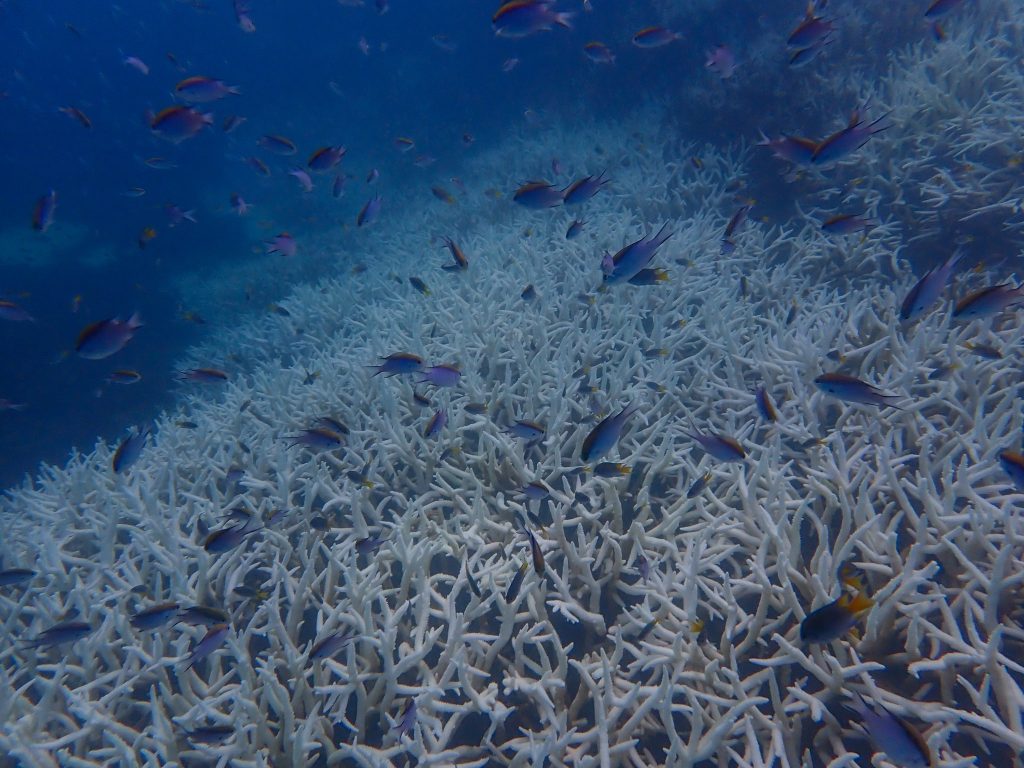
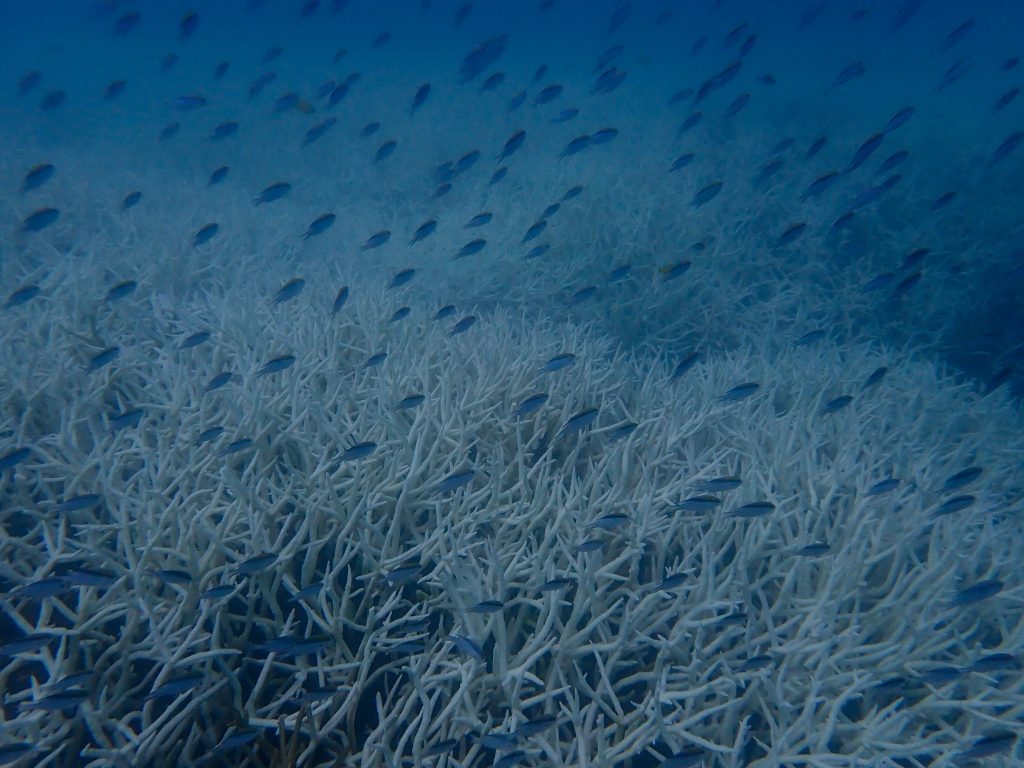
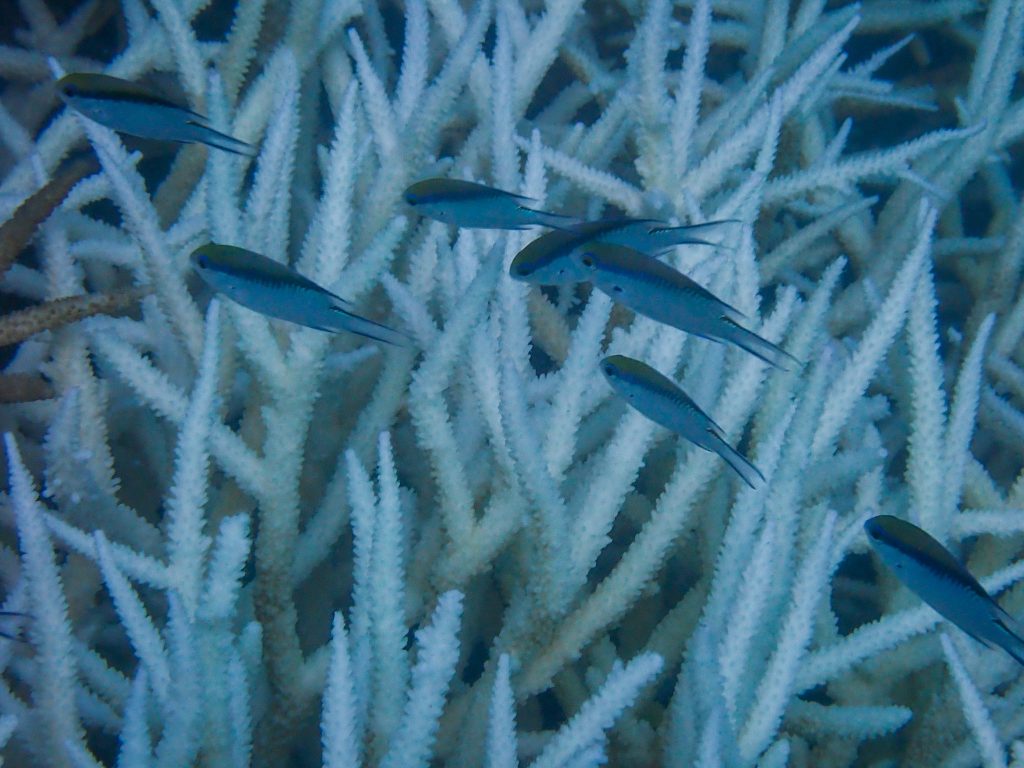
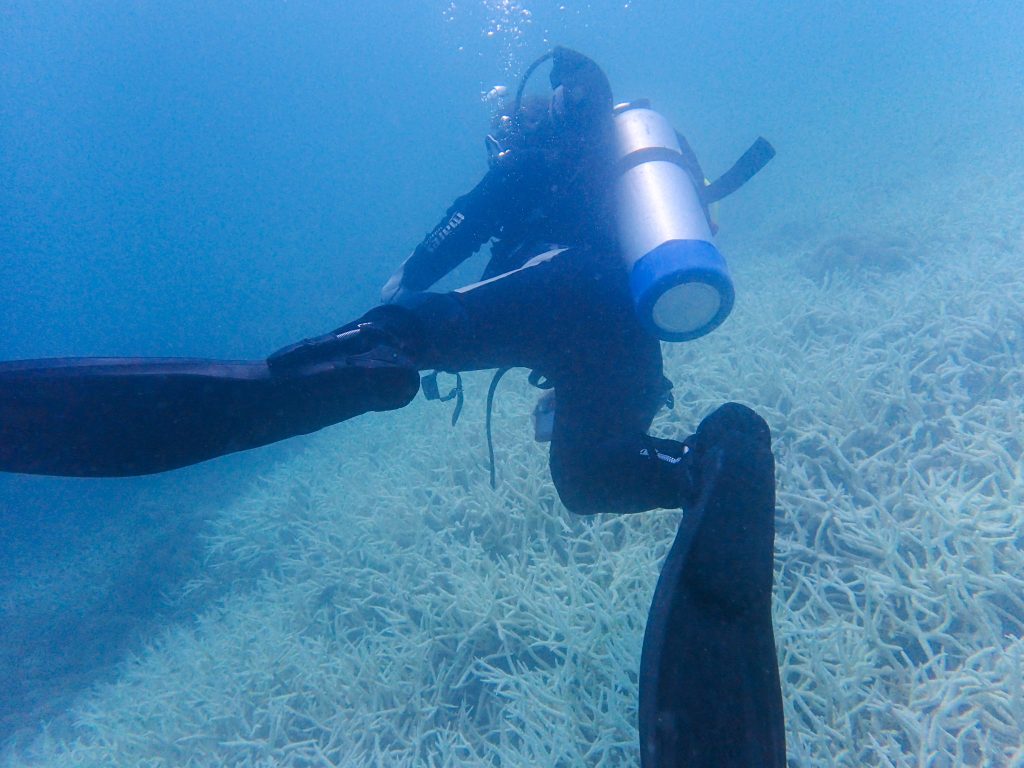
I spent 45 minutes under-the-water at this dive site to the east of Great Keppel Island and I have never seen so much stark white, badly bleached coral.
The reports of bleach here have not been exaggerated. This is a really badly bleached coral reef.
My buddies on scuba had dived here through summer and said it was whiter back eight weeks ago; the bleaching had apparently come on suddenly mid-February. And, they said, to their eye, some of the corals were starting to get their colour back as the water had cooled down by several degrees.
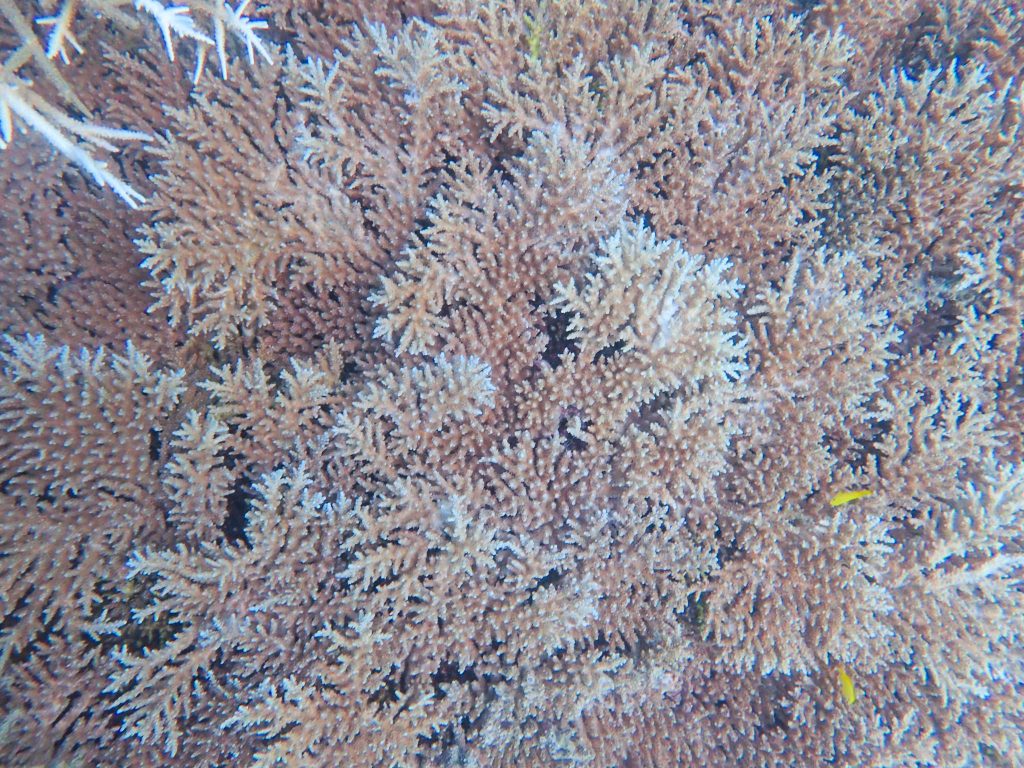
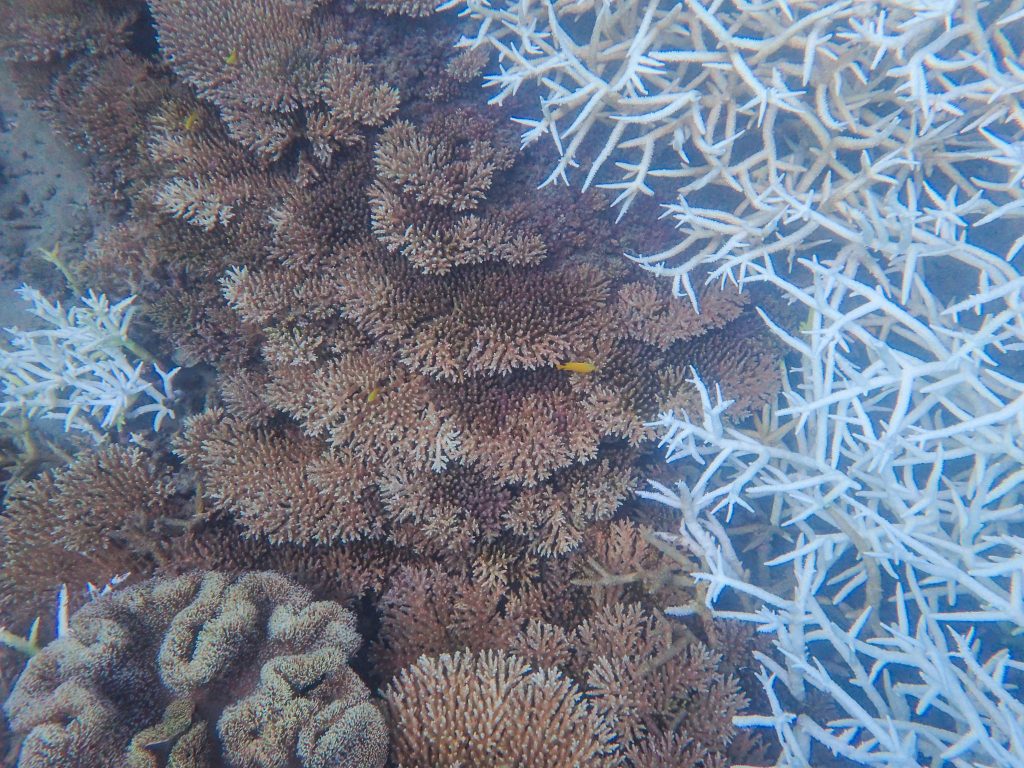
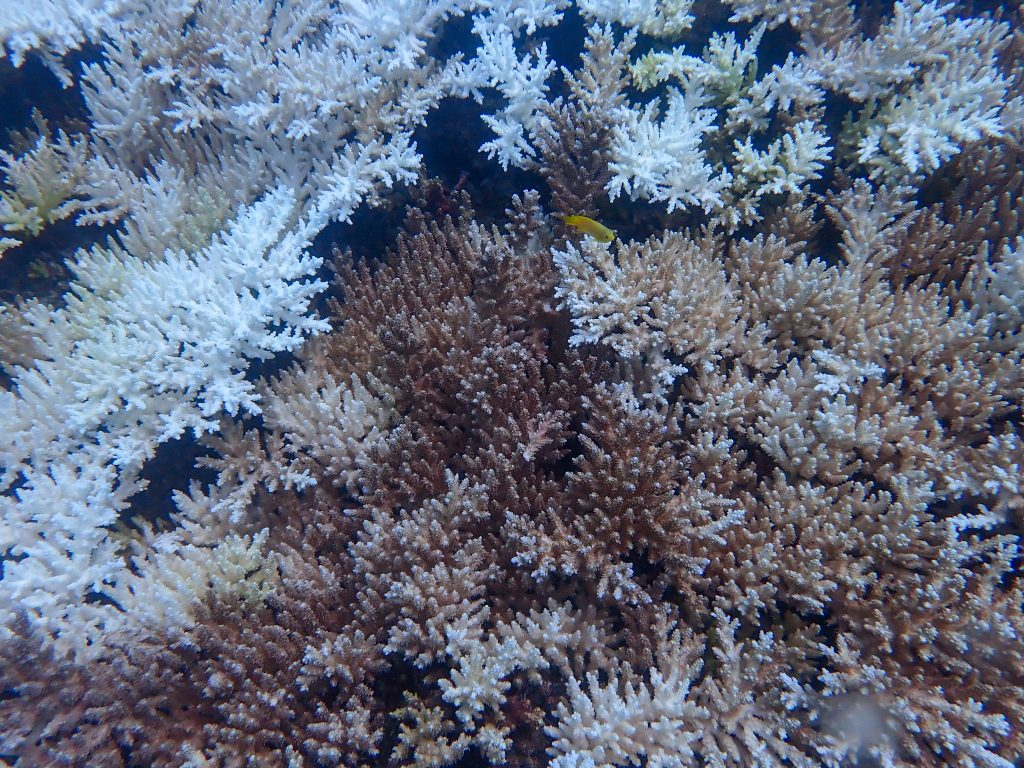
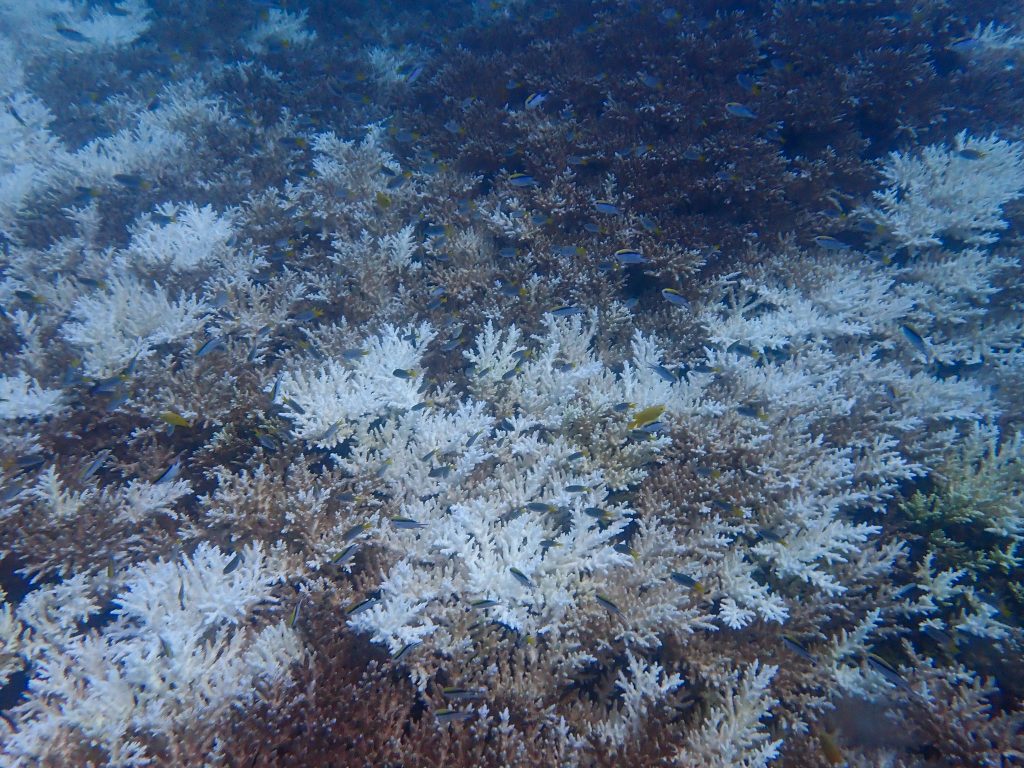
I could also see sections of this reef already beginning to die, that the algae have already set in.
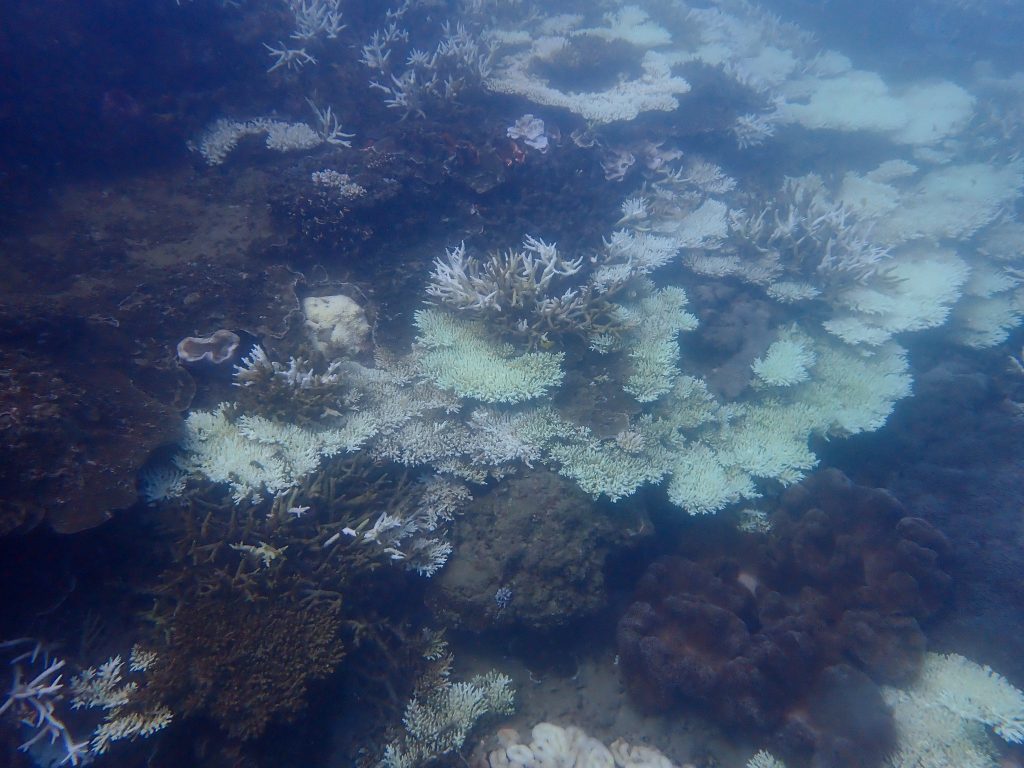
According to Alison Jones’s book about the Keppel Island reefs:
In the shallow waters of Keppel Bay, coral bleaching on a mass scale has been infrequent and reef recovery has usually been fast.
Mass bleaching was recorded in Keppel Bay in 1998, 2002, 2006, 2020, with minor bleaching in between. There are also earlier unofficial reports by local fishermen of bleaching in 1983 and 1987.”
She also writes that:
Keppel Bay’s reefs can recover rapidly from bleaching because of the excellent growth rates of this branching species. After the catastrophic 2002 bleaching episode, coral cover increased rapidly, reaching 81 percent in 2004, the highest coral cover ever documented.”
Of course, bleaching has occurred over the millennia. It is just that scuba, and more specifically underwater photography, is a recent technology and the politicisation of corals even more recent.

Despite all the white, there was an abundance of little fishes, and so many other creatures including sting rays, nudibranchs, turtles and from the dive boat as we approached this reef from the north, I saw a dolphin.
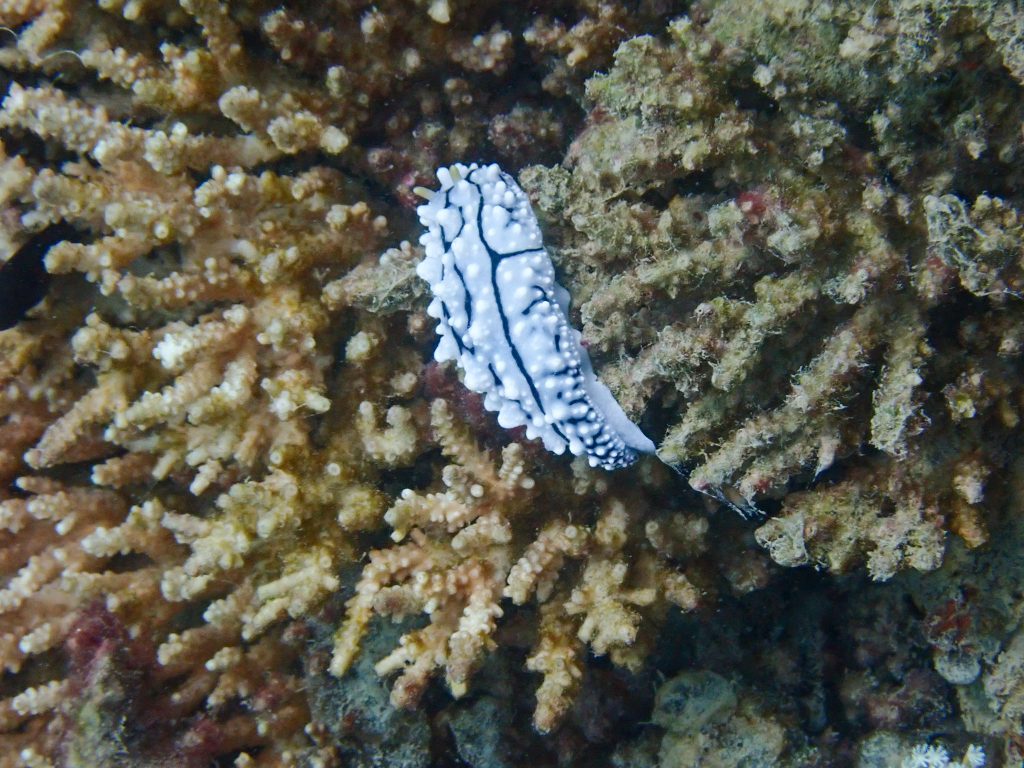
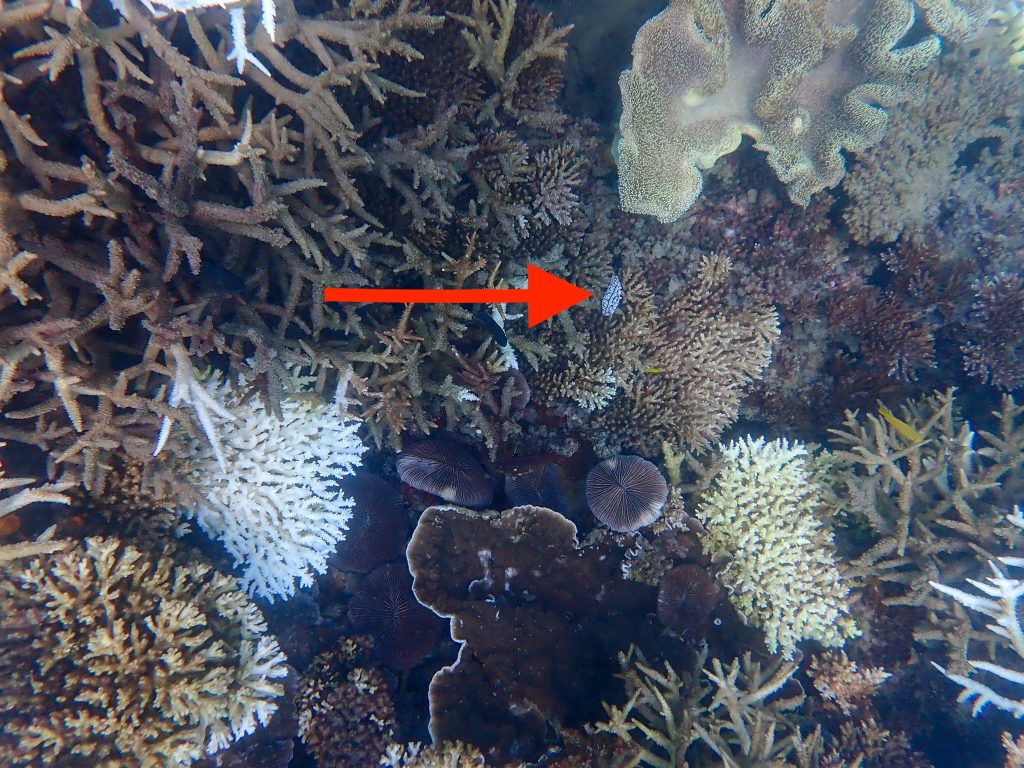
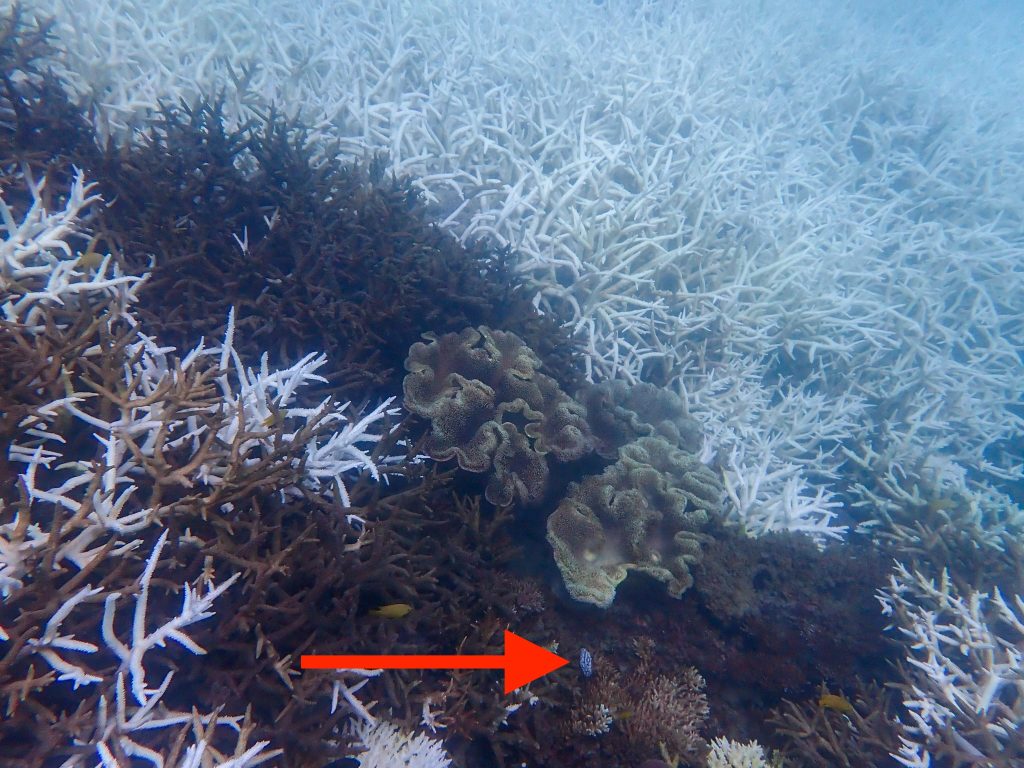
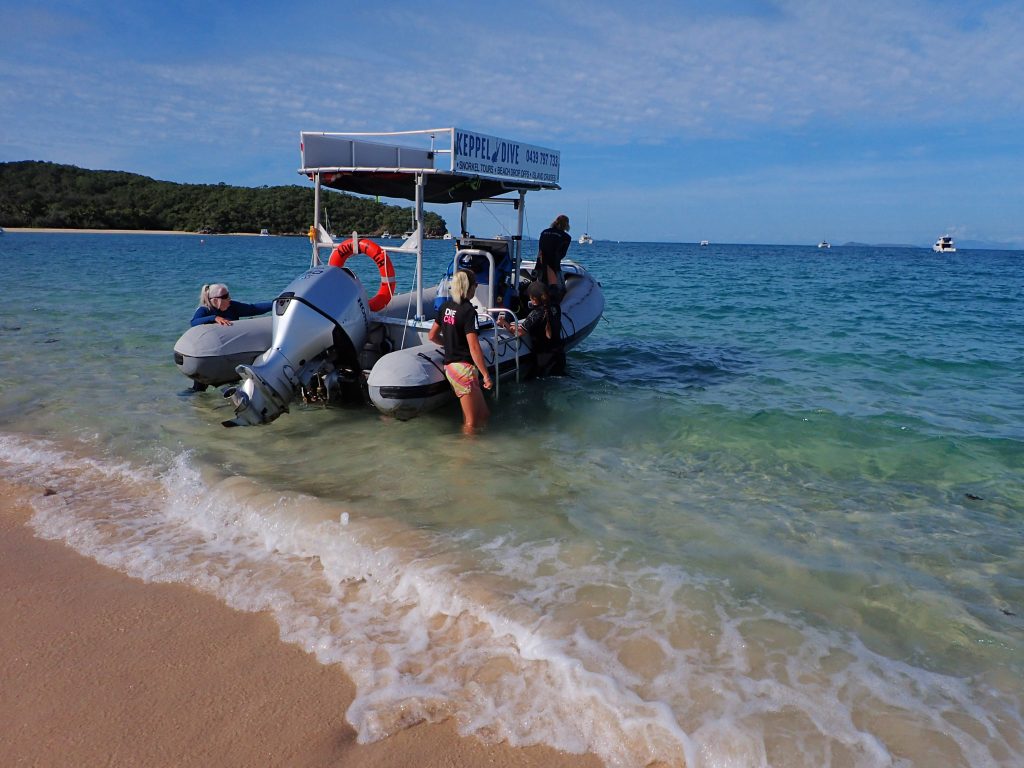

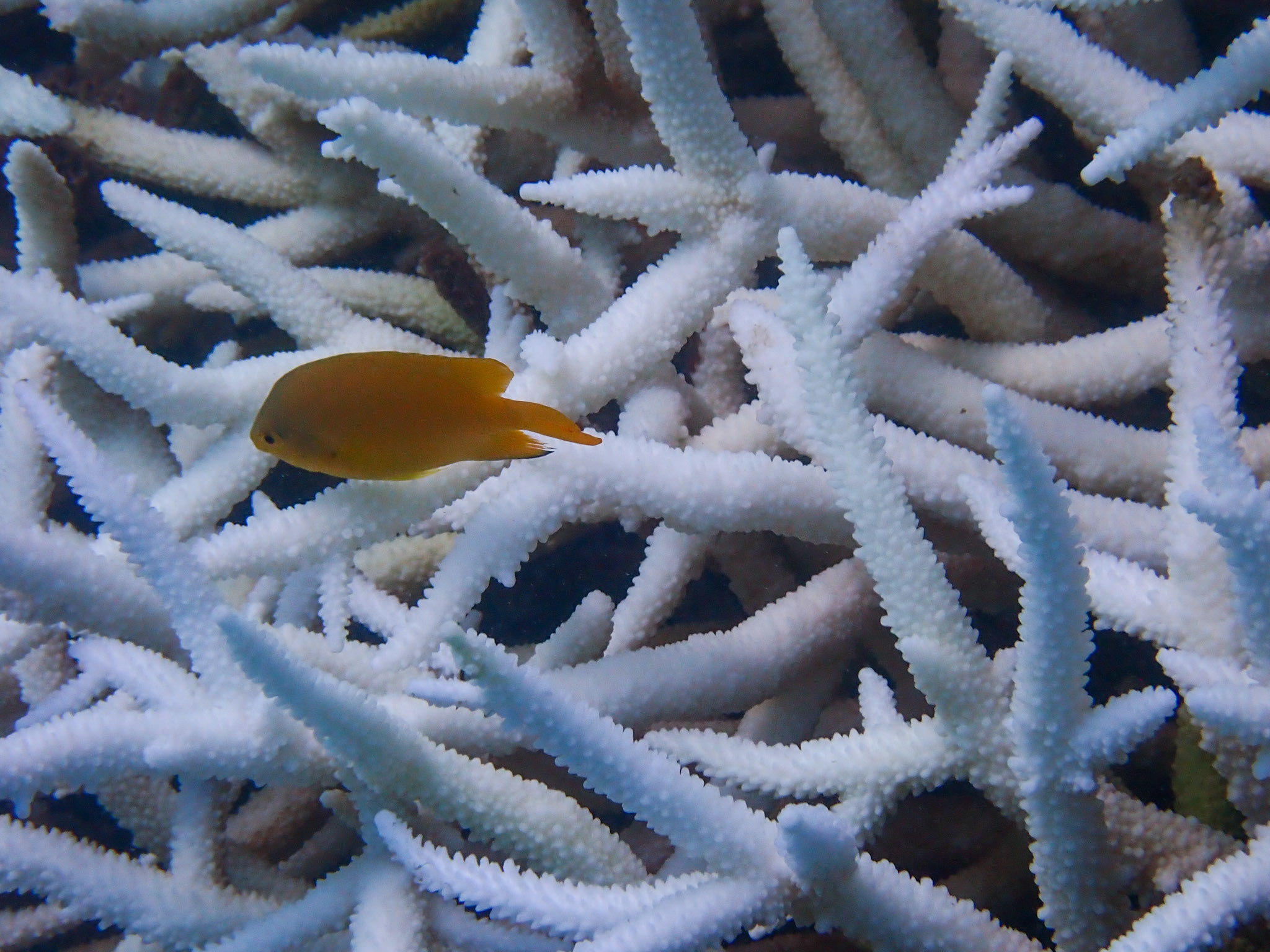
 Jennifer Marohasy BSc PhD is a critical thinker with expertise in the scientific method.
Jennifer Marohasy BSc PhD is a critical thinker with expertise in the scientific method.

Coral bleaching is occurring. Some will see this as evidence supporting factors linked to climate change. Your observations help us to understand that because such bleaching has been occurring regularly over many years … and has recovered … it’s logical to conclude that the GBR is indeed resilient to some degree of stress.
I may be misinterpreting the your discourse and photos. Some corals have been bleached, and that surely is the right word but other adjacent corals seem ok. Where they different corals, the water temperature would be the same?
Thank you for your unbiased report and great photos of the reef section off Bald Island. It is good to read an honest report which has no political bias.
The report identifies periodic coral bleaching that appear to occur at a similar frequency to the El Nino phenomena. Is El Nino likely to have an influence?
Thanks again,
Martin
Alison’s book was published in 2022, and she notes, “Coral cover here is among the highest on the Great Barrier Reef; species richness is far higher than neighbouring reefs; corals grow faster here than at any other known reefs; and, somehow, the corals in Keppel Bay are more resilient to all the things known to stress corals, such as heat, mud and fresh water”.
I wonder how she now feels about the potential for recovery with for frequent mass bleaching in 2020, 2022 and now 2024.
Given that the Keppel Island reef is so resilient, imagine the poor state of the reef in the hundreds of other, less resilient, locations surveyed.
Thanks again Jen, for all your work.
It will be interesting to get an expert opinion in the coming months as to whether the net results of the SST warming and cooling and the consequent coral bleaching and recovery are a plus or a minus for the GBR.
Whilst reading one of Mary Grant Bruce`s famous old “Billabong “books, I followed the “Linton” family up to Queensland, where they were holidaying. The author`s splendid method of description, on their many travels/trips, here and overseas, grasps her readers so well, that they are” on the holiday “with the characters in the book. In the Queensland story, set in the 1890s, Norah of Billabong mentions the coral as being bleached, but notes that it is normal and expected, but worthy of note in the story. Unfortunately, I cannot remember the title of this particular book in the “Billabong” series, but I rely on this splendid author`s true “reporting”, so to speak and blistering accuracy in all that she wrote. Convinced that this mention would be completely true, I have no hesitation in drawing it to peoples` attention as factual.
“She liked it best when it came in waves that dashed cheerily beneath her port, breaking in a scatter of star-lit foam; but to-night it was dark and mysterious, and if you were wakeful it was easy to weave stories about it, and to picture tropic islands where just such seas lapped lazily on white coral beaches. In the daytime, Norah was a very practical person, and rarely thought of weaving stories.”
Coral bleaching is a phenomenon which has been occurring for millions of years and the coral structures are able to survive provided that the normal winter cooling occurs. The corals are adapted to the temperature swings of El Nino and La Ninha events in the Pacific Ocean. The corals have also evolved during a time of considerable continental drift when ocean currents and ocean temperatures changed dramatically.
It seems that coral bleaching is a recurring event that has probably happened multiple times over the centuries and the coral recoves . With the invention of SCUBA we can observe far more closely but we need not panic or overreact as it seems to be a recurring event!
John Forbes, don’t you think more extensive, double blind, random surveys of GBR would give more meaningful results.